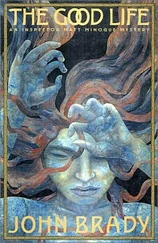‘And where is your home?’ I tried again.
‘I have such headaches, as if a weight is clamped to my skull. There are great gaps in my memories. I think I was on a train — I remember the noise of a station. Trains hooting, smoke rising towards a great arched roof. There were many people there; I remember I was upset by the crowds. I think I shouted at a man, “Get away from me!” He had approached too close, and I feared contagion. Then there was someone I remembered from the past, a good friend. I was so pleased to see him. I stretched out my hand to greet him. But you are here! How marvellous! How have you been? I think I was wearing a suit. I was well dressed, not like this’ — and he gestured to his soiled and ripped clothes. ‘I was not ashamed of myself at all, as I should be now, if this friend came to see me here. I cannot remember what happened after that. There are many things I cannot remember. You say I have been here two weeks, but I have few memories of recent days. Just a grave sense of coursing regret. A feeling as if I am descending into thick black night and shall never see the dawn again.’
‘You are not Viennese by birth, I assume.’ I said this because the man’s German, though impeccable, was Magyar in inflection and emphasis. I meant it to be a benign enquiry, yet the question seemed to anger him, because he stared suddenly towards me, and clenched his fists.
‘Forgive me, but I believe you come from the Hungarian Lands?’ I persisted.
‘I do not know. If you say so, perhaps it is true.’
‘You do not remember this either?’
‘I think I do not. It is as if … there is a barrier standing between me and the past. A wall. A forbidding wall — grown over with ivy. I see the wall, and I note that it is high and I cannot scale it. Beyond that, I am confined.’ He stopped and rubbed his forehead, frenetically. He continued this action for some minutes, until I thought I must distract him. So I said, ‘Do you have any idea why you were brought here?’
‘I believe I am an inconvenience to someone,’ he said. ‘Someone has finally tired of me. I am not sure who that is. There are many who might have grown tired of me by now.’
‘Why is that?’
‘Because of what I have said. Because of the charges I bring against them.’
‘Against whom?’
‘Oh, countless numbers of them. Murderers, all of them,’ he said. And he leaned towards me and said, ‘Because of this I have my suspicions they are trying to destroy me. They are watching me and trying to destroy me.’
*
In my years of studying the mad, or this category of humans we refer to thus, I have become quite accustomed to such expressions, and indeed there is a constant pattern in the pronouncements of certain sorts of more intelligent lunatics, a tendency to fashion repeated accusations against a general ‘they’, a gang of conspirators, assumed to be plotting against the insane individual. Frequently these accusations lack any foundation in reality; they are more symbolically representative of a sense of being cast out, or of feeling oneself beleaguered by events and powerless to control them. Naturally, were we all to dwell on the inscrutable workings of the universe, we might easily slip into this state — we are here, in an uncertain realm of death and destruction, and there is no possible way we can predict our futures, and at any moment everything we love may be taken from us, by disease, or war, or calamity of some other sort. Might we not quite reasonably propose that there is someone plotting our demise? Indeed is this not the central tenet of many of our religions, when they proclaim that there is a deity observing our every movement, listening in to our every thought, and constantly assessing us, for glory or punishment? Are not such religious men as Job repeatedly cast down by their creator, precisely to test their endurance? By the teachings of the Old Testament, Job would have been perfectly sensible in believing that a ‘someone’ was conspiring against him; God was indeed doing this, for His own great and all-knowing purpose, no doubt, but it was conspiracy all the same. Many such parables do not even offer glory — they entreat the believer to aim at nothing higher than the avoidance of punishment, to petition only for mercy. As our religions derive from the deepest yearnings of the human spirit, such beliefs must express an innate hope that our actions matter to someone, that some meaningful process of judgement is being applied to our lives. In childhood, we resist our parents, while needing them to observe us all the same, praise us for our good works and censure us for our bad. And once we have passed beyond the sight of our parents, we summon our divinities, to observe and assess us once more. For life without a committed observer is aimless indeed: we are alone, and no one minds what actions we take.
*
This is merely a theory of mine, Professor Wilson; I expect you will disagree. Nonetheless Herr S evinced a firm and — I thought at the time — generic sense that somebody was plotting his downfall, and he looked antic indeed as he informed me of his suspicions, widening his eyes and wringing his hands, as if he must cleanse them.
‘These people you describe, whom have they murdered?’ I said.
There was a long pause, which I allowed to develop. He sat there, hanging his head, and finally, after some minutes, he said, ‘We are murderers, all of us. I am the worst of all. But they are steeped in blood too. I have murdered thousands. And they also. The difference is I admit it. I accuse myself,’ and now he became a little excited, and raised his voice. ‘I accuse myself of murder. Thousands of souls. I have killed thousands. Mothers and wives, laid waste.’
‘The victims were all women?’
‘Oh yes, the massacre was only of women. I have dreams in which I — well, it is best not to speak of them.’
‘I would be most interested to hear of your dreams, if you are able to relay them,’ I said. ‘I believe that dreams may offer an oblique portrait of our fears and desires, because when we dream we enter a realm of ambiguity and ellipsis, and thereby much that is lost in everyday speech may be regained.’
‘My dreams are all of blood.’
*
Herr Meyer had warned me that self-accusation formed the main theme of Herr S’s conversation, and I perceived that it was inappropriate to dismiss his concerns. I find it is best in these circumstances to treat such pronouncements as fundamentally symbolic, suggestive of a state of being rather than revelatory of criminal actions, and so I felt the best course would be to allow Herr S to talk, to rail, rather, and to write down his words. With this in mind, I drew out my notebook, and this action made him all the more excited. He pointed at it and said, ‘Oh yes, mark it down. Mark it down and set it all before the judge. I deserve judgement, and I will be judged if not in this life then in the next, if there is such a place.’
‘I am not writing it down so that you may be judged,’ I said. ‘I merely want to hear what you have to say.’
‘Who has sent you?’ he said, suddenly, his mood changing again. He flashed a furtive glance towards me, as if I too posed a threat to his safety. ‘Why do you want to know these things?’
‘I am a scholar, of sorts. That is, without an attachment to a university, I make researches into those we regard as insane. This has been my interest for many years. I have published various books on the subject, and though my opinions are not at all fashionable there are some who are kind enough to consider them of importance.’
‘You are a doctor?’ he said. Something in his face changed. The light was so precarious, it was tantalisingly difficult to read his expressions, but I thought I discerned something more focused in his aspect. He was sporadically animated, as I said, but this was a more intent and questioning focus, as if he were truly attending to my words.
Читать дальше












